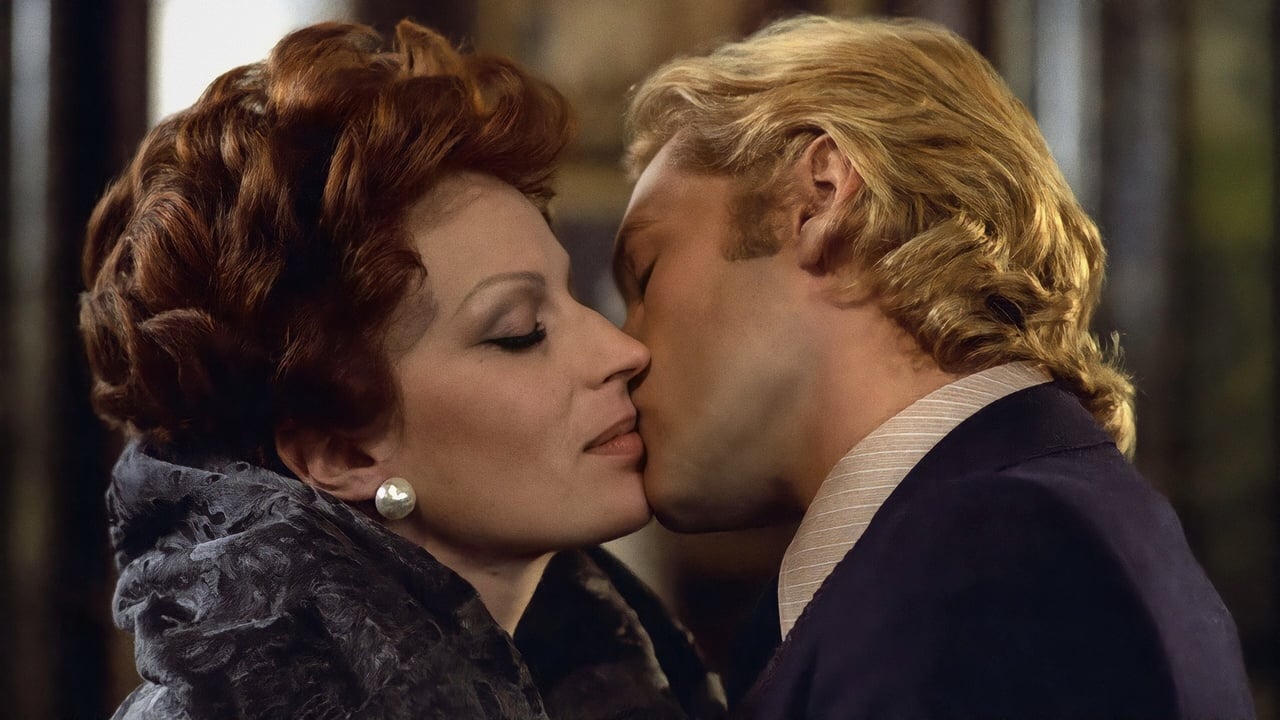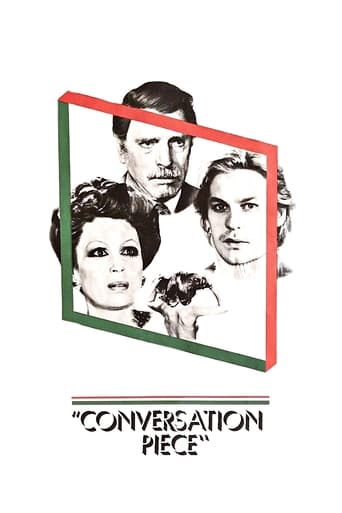

Dreadfully Boring
... View MoreIf the ambition is to provide two hours of instantly forgettable, popcorn-munching escapism, it succeeds.
... View MoreIf you're interested in the topic at hand, you should just watch it and judge yourself because the reviews have gone very biased by people that didn't even watch it and just hate (or love) the creator. I liked it, it was well written, narrated, and directed and it was about a topic that interests me.
... View MoreA terrific literary drama and character piece that shows how the process of creating art can be seen differently by those doing it and those looking at it from the outside.
... View MoreYou discover entire his universe in this film who seems be an elegy. a film about solitude. and about family. politics. and love. dark. bitter. cruel. and precise definition of Visconti filmography themes. a film who works in admirable manner against the small not inspired details. more than other films, it represents a confession. honest. and terrible. about a world, about the others, about abdication, about force of challenges. about the way to define yourself.
... View MoreVisconti's penultimate feature, CONVERSATION PIECE is made after he suffered from a stroke in 1972, and would pass away in 1976 at the age of 69. The context might make plain that why this chamber piece is entirely set inside an old but palatial palazzo in Rome, where lives the retired professor (Lancaster) who is a conversation pieces collector, and a pall of nostalgia has been waywardly infused through his twilight year rumination over senescence, facing the imminent death and contending with hedonistic younger generations.The professor's solitary life is interrupted when he reluctantly agrees to rent out the apartment to Marquis Bianca Brumonti (Mangano), a middle-aged nouveau riche, soon he will get wind of the fact that Bianca has rented the place for her 12-year-junior kept-man Konrad (Berger), her teenage daughter Lietta (Marsani, Miss Teenage Italy 1973) and her pallidly handsome boyfriend Stefano (Patrizi), the latter two are quintessential rich kids wrapped in cotton wool, impressionable and capricious respectively. His young neighbors have no qualm about encroaching on his territory and breaching his equilibrium of tranquility and detachment, but the most egregious one is Bianca, a wanton intruder who takes Professor's courtesy for granted, her laissez-faire approach towards Lietta, her strained relationship with Konrad, her condescending ordering around Professor's diligent maid Erminia (Cortese), Visconti patently wears his heart on his sleeve that Bianca is an outrageous entity under the aegis of wealth, and Silvana Mangano never disappoints, she can be unapologetically ferocious, which pierces through her ageless make-up and hammers home to the point we cannot help but wondering why and how the professor must countenance such a prima donna!A more plausible reason is the Adonis-like Konrad (although Berger's exquisite look has begun to shown a smidgen trace of waning at this point), who is radical, cynical and self-destructively antagonistic towards the status quo which he has no power to change, and the professor harbors an almost reflexive and one-sided feeling of tendresse to him, Visconti cautiously skirts around the gay undertow, and instead foregrounds professor's reminiscence of his youth (where two legendary actresses Dominique Sanda and Claudia Cardinale appear uncredited in brief flashback as the professor's mother and his wife) and characterizes Konrad as an ideal force of beyond-the- pale dissolution, whose ultimate vengeance is harrowing but futile, soon to be forgotten.Over a decade has passed since THE LEOPARD (1963), Burt Lancaster returns to a similar niche in this elegiac think-piece and stays in top form with opulent compassion where his restrained self- pity, behind-the-time humility and an underlying disillusionment conflict to retain the vestigial of nobility. The professor's study is ornately-decorated in baroque majesty, in sheer contrast with Bianca's modern taste, in Visconti's eyes, the world has not progressed into a better world, CONVERSATION PIECE bemoans a bygone era of blue-blooded etiquette, it speaks volume, but frisson however, never materializes.
... View MoreWhen the end credits rolled up all I could think of was Visconti trying to recreate the emotion and beauty of the last shot of his best film "The Leopard". You see Lancaster, sad and disconsolate - yet this time it didn't make me feel all that bothered.Lancaster plays here a very similar role; a sophisticated, old-fashioned and ageing Professor. He lives in great luxury in an exquisite villa in Rome. Everything seems perfect and serene until he is coaxed into renting an apartment to a decadent family.They behave terribly. They destroy a noble and humble abode into something crass and awfully tasteless. Yet, that is no surprise; the family comprises a sexually promiscuous daughter and her boyfriend, and a older woman who panders to a toy-boy played by Berger. They swear, play loud music, have no apparent sense of decency or morality. There is obviously a clash of belief systems here. Lancaster, an intellectual, well-educated and dour old man is confronted by the amoral youth of the 60s and 70s.I would normally love films like this. The 60s and 70s are periods that fascinate me greatly. I love Visconti as well, but somehow I get the feeling he was drying up creatively as I viewed this. The script is so heavy-handed sometimes, just the constant cliché that Berger plays is so drawn out and predictable - the angry Communist who just hates life and society, then the older gentleman with good manners who cannot comprehend the change around him and really does not want to understand it and finally the airy, vacuous daughter who seems completely bereft of depth or emotional sincerity. It all seems a little rushed and lacking in subtlety and the very theatrical performances from the mother and the daughter do not help whatsoever.Visconti was nearing the end of his life when he made this film, and in a way it shows - in two ways. Firstly, it seems that his zest was depleted, the screenplay and whole film are lacking in coherence and a clear structure, and secondly it appears that he was now a filmmaker in a period, a society, a culture that he did not like or comprehend. The decadence, the flamboyance and the hedonism of that time seemed to be overwhelming him; and in a sense like the framework of this film, he saw everything crumbling around him. For this alone, I could say at least watch it for the pretty pictures and a brief insight into the mind of a director who just felt lost and confused - with this film, society and with life itself.
... View MoreProfessor Lancaster leads a reclusive life in his art deco apartment, surrounded by classical paintings, books and memories. Along come new loud tenants who rent his upstairs apartment and force themselves onto the Professor who then questions his existence as a mixture of the old and new culture clash in intellectual wars and morals. Another interesting piece from Visconti's preoccupied topics of fallen aristocrats and the morality of life.
... View More